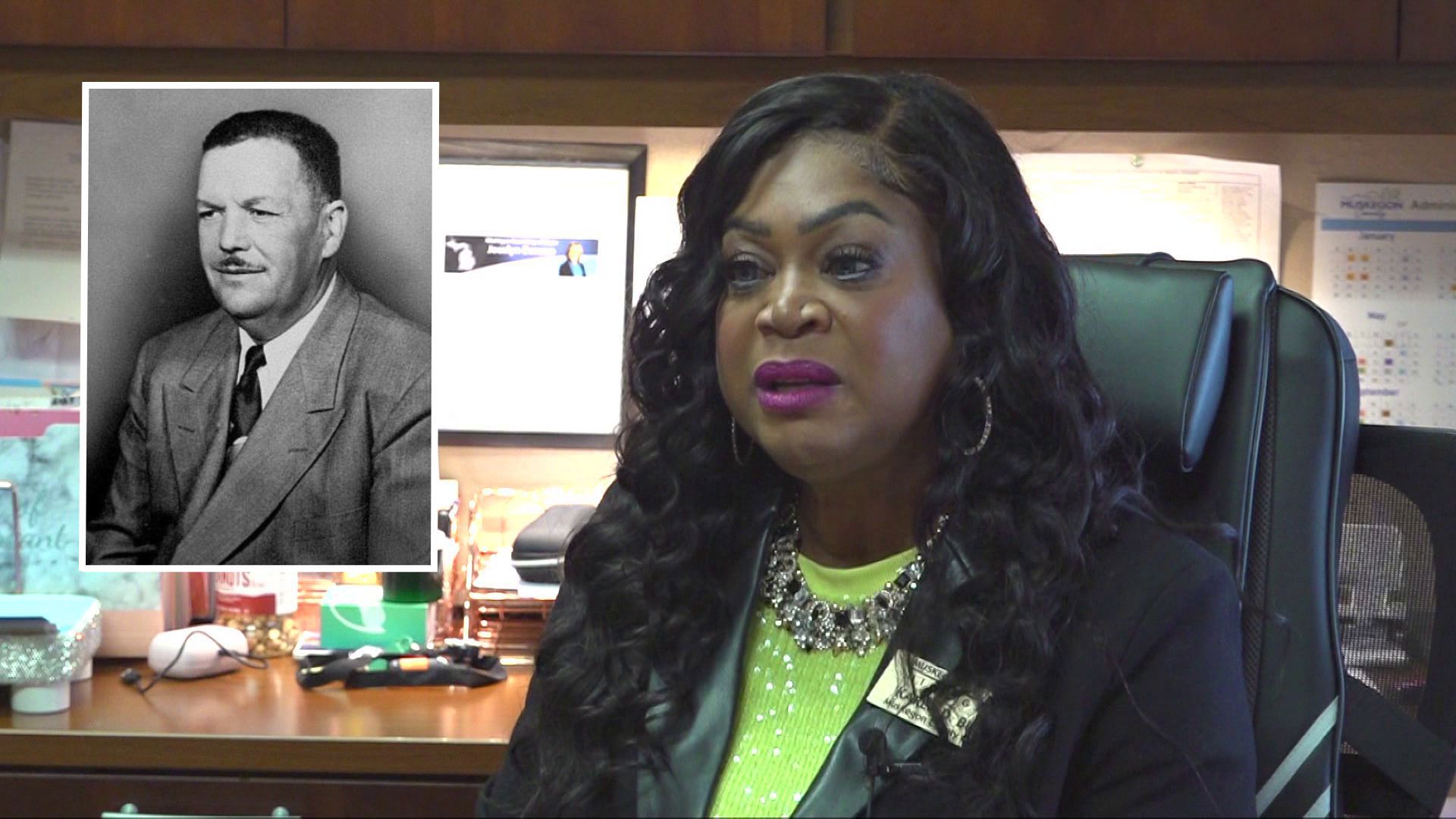MUSKEGON, Mich. — Muskegon County Clerk Karen Buie is no stranger to local politics.
Buie has been involved in Muskegon’s political scene most of her career. She has served as a city commissioner, vice mayor of Muskegon and Muskegon County clerk.
Buie aims to serve her constituents by "making sure that our clientele is served and served with integrity, making sure that every vote counts."
Her passion for voting rights and election integrity would come as no surprise if someone looked at her family’s history. Buie’s great-uncle was civil rights and voting rights activist Vernon F. Dahmer.
“He worked with Medgar Evers and Martin Luther King, and he walked with the civil rights activists,” she said. “He started the NAACP in Hattiesburg. Once he started that, he realized that poor blacks and whites and women, too, had hindrances to voting.”
Dahmer was killed by the Ku Klux Klan in 1966 for his efforts to help pay polling taxes for those who could not afford it.
He believed everyone had the right to vote. His motto was, "If you don't vote, you don't count.”
“The Klan at the time of Sam Bowers was the Ku Klux Klan Grand Wizard, I believe they called him, they would have meetings and talking about this Black man that was trying to get people to vote, and how he was being a threat," Buie said. "And they had two projects, I think it was Project Three and Project Four. Project Three meant arson, Project Four meant murder. And so every time they would have a meeting, my uncle's name would come up, and they said, 'We've got to do something about this.'”
Buie said for years her family in Hattiesburg, Mississippi would sleep in shifts, as they received many threats from the KKK.
“They were afraid that something would happen in the middle of the night, and it did in 1966… I just remember the chaos,” she said. “My cousins were jumping out windows and trying to escape, and they only had one daughter, and she fell back into the building as they were trying to get out. So she got severely burned and cut, and my uncle was making sure that they got to safety.”
Dahmer, suffering from severe lung damage, died days later. His wife and children survived.
His death sparked conversations about voting and civil rights across the nation. Then President Lyndon B. Johnson sent the family condolences while the FBI investigated the attack.
“There were marches,” she said. “There were people from all walks of life, black and white, were very upset, because this was a good man. This was a man that was a pillar in the community.”
After his death, his family vowed to continue his legacy. Buie says her family got involved in local government to advocate for the rights of others, just like Dahmer.
“His widow, my aunt Ellie, was appointed and has served on numerous city commissions, and has been a pillar in the community too… three generations later, here I am doing the same thing.”
“I believe I stand on the shoulders of my uncle and those that have gone on before us that have shed blood and died for the right to vote,” Buie said. “Today we still have voter suppression around the country. We have in this last election, they were firebombing and setting mailboxes on fire and and trying to hinder people's right to vote. So I'm impassioned by that.”
Karen has made it her goal while serving as clerk to be transparent to her constituents about voting security and election integrity.
“As far as I'm concerned, we protect everybody's right to vote. And it gives me pause to thank my ancestors,” she said. “You know, I didn't do this by myself. It was a generational blessing, is what I call it. And I thank my community because it had not been for those in the past, we wouldn't know what our future looks like.”

